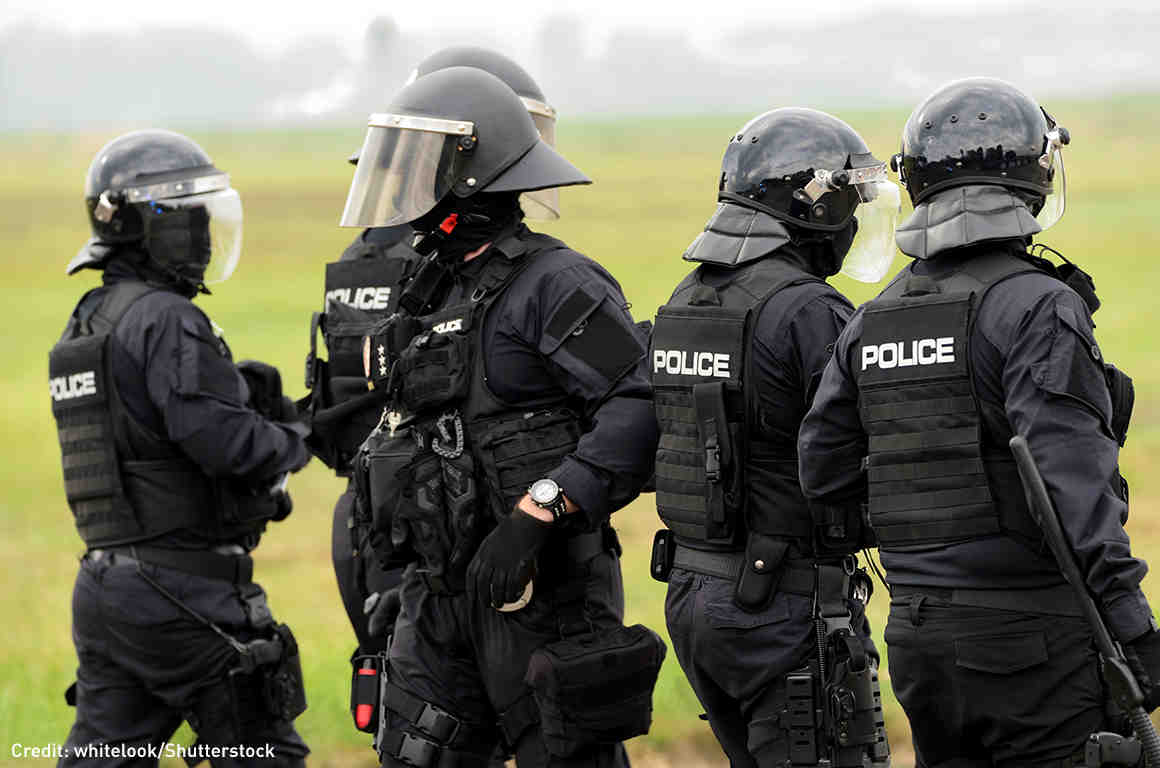Filed under: Community Organizing, Health Care, Midwest, Police, Publication

The following flyer was created by Kansas City IWW and GDC, but could easily be used for any local context. It argues that we need to build up networks of mutual aid in times of crisis, as opposed to relying on the police.
Download and Print Here
According to USA Today, people with mental illness are 16 times more likely to be killed by police. According to statistics compiled by The Washington Post since Jan 2015, 744 of the 3011 *reported* victims of police killings showed signs of mental illness. And according to an NBC report from 2014, nearly half of all people who die at the hands of police have a disability.
Police departments have only limited, informal training on how to de-escalate sensitive situations and they typically have a very small number of registered social workers or medical professionals (called “co-responders”) on staff, if there are any at all. And despite recent extreme funding increases for KCPD, the number of officers has decreased by at least 8% since 2013. As a result, response times have increased in some cases to between 1 hour and 1 1I2 hours, even in cases of violent crimes. With 149 homicides, 2017 was the deadliest year in KC since 1992.
But cops aren’t just a threat to disabled people and the mentally ill people. They’re a threat to everyone in our communities. There is a simple explanation for this: COPS ARE TRAINED KILLERS.
Every time you think of dialing 9-1-1, ask yourself “is this worth someone’s life?” If your friend ODs or your partner has a heart attack, will an EMT arrive at your door with a medkit and a will to help? Or will it be a cop with a license to kill or lock humans in cages? If your neighbor shoots off fireworks in the middle of the night, or their dog is barking, talk to them, ask them to stop. Your neighbors are people, just like you. Get to know them. Be a good neighbor. Learn the needs and conditions of the people in your community because it’s their community too.
In order to make a life for ourselves without having to rely on the cops, we need to start relying on each other. But one of the biggest problems with the way society is constructed is that we feel we have to put ourselves and our families above everyone else. Work, school, and the daily grind isolates us. But we can fight it in some very simple ways. Here are some ideas for how to get to know your neighbors.
— If you live in an apartment, find common areas such as dog parks or smoking areas, and be there even if you don’t have a dog or smoke.
— Help them carry groceries or do yard work.
— Potluck. Food is the great unifier
— Start a text chain, email chain, or social media group and add your neighbors to it. Call it something like “Neighborhood Rapid Response”. Signal is a good messaging app if you have a smartphone. GroupMe works with non-smartphones as well.
— Add these numbers to your phone (even if you may not encounter these problems personally, they could help someone you know):
-National Domestic Violence Hotline: 1-800-799-7233
-Love Is Respect (Dating Abuse Hotline): Call: 866-331-9474 txt: loveis to 22522
-National Suicide Prevention Lifeline: 1-800-273-TALK (8255)
-Compassionate Ear: 913-281-2251
-National Drug Abuse Helpline: 1-877-899-9321
-If you have a companion animal that you need to keep safe, but can’t take with you, please call KC Pet Project: call: 816-513-9821 email: contactkcpp@kcmo.org





